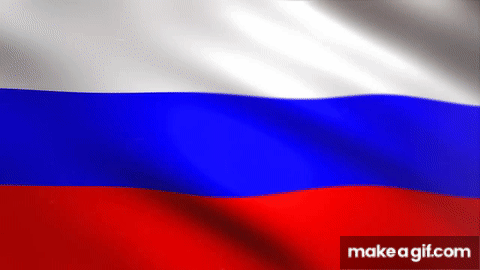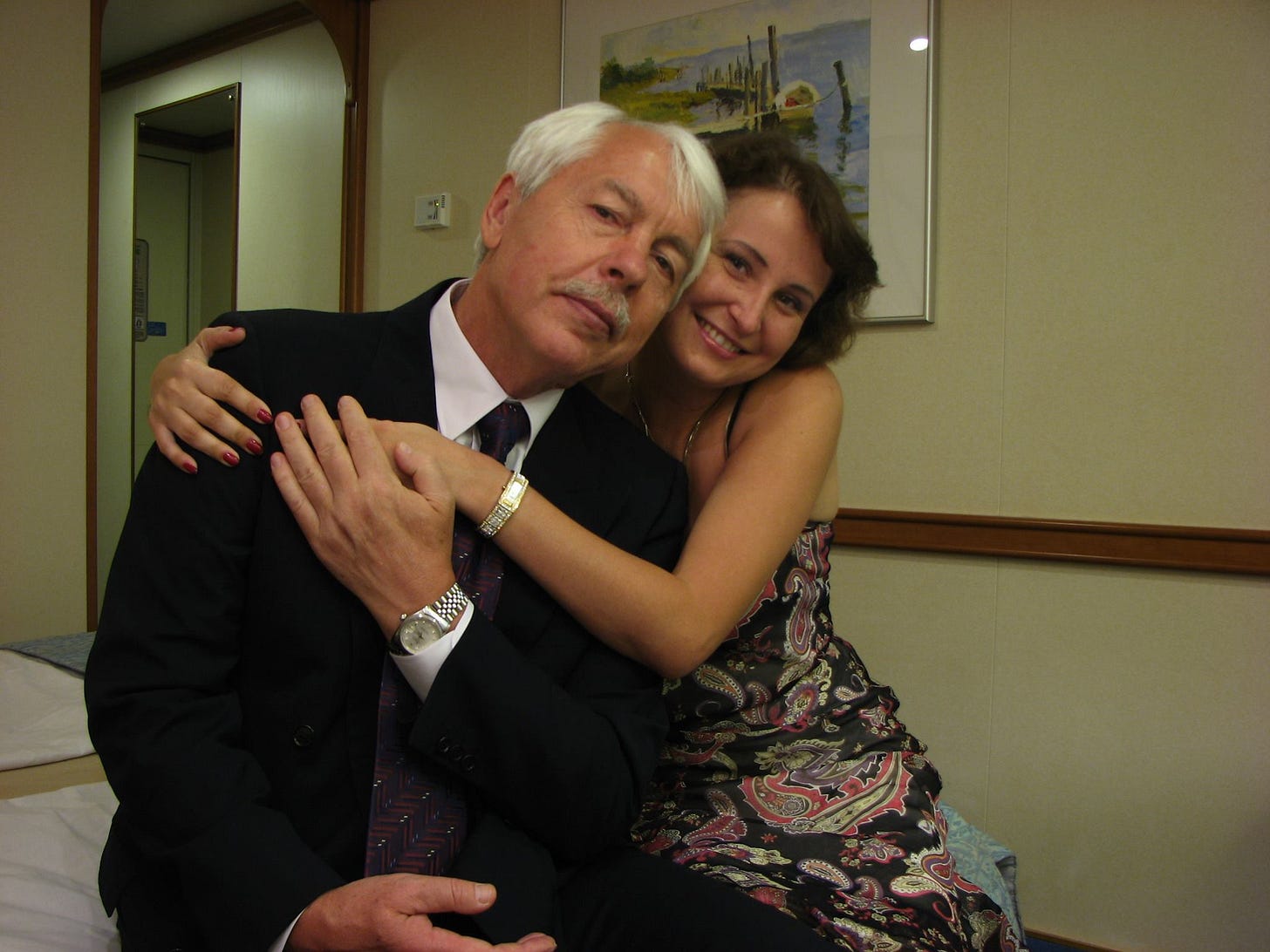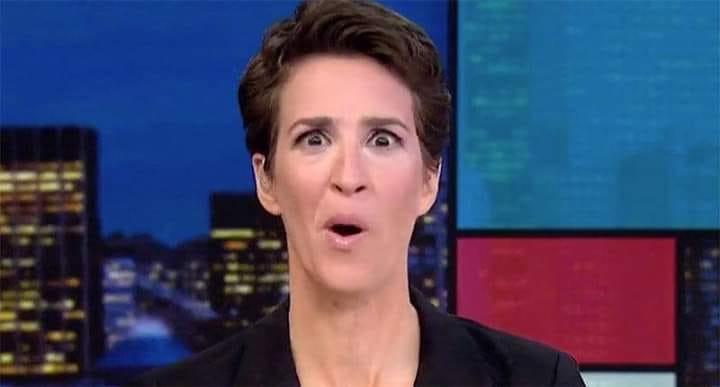Crimea attempted to leave Ukraine for Russia some 20 years before it finally did Pt. I
Drafted a Constitution. Elected a President with 72.9% of the vote, who directly went to Russia to ask to be accessed. And Putin was nowhere on the scene at the time.

By Kevin Wayne Part I in a two-part series.
The story I am about to relate to you is of an abused and unhappy woman, who fed up with her abusive lover - attempted to leave him some 20 years before she finally broke up with him for good. But at first, the abuser refused to let her go.
Finally, some 20 miserable years later, the man she truly loved came to rescue her. And they are living happily together to this day, this year being the 10th anniversary of their reunion, and the 30th of her 1st attempt to leave an oppressive situation.
This is a story based on the facts, but it is seldom told. It is the truth whether you care to accept it or not. It is of course a metaphorical account, as the woman is named “Crimea,” the abuser “Ukraine” and the “man” she’s always loved… is Russia.

The media, the government, and unfortunately for me as a Christian - the Church… All seem to want to hold in contempt places like… Russia, China, Iran, North Korea and other such places that seem to diverge from the kind of Western culture that is comfortable to… Westerners… These are terrible places no right-thinking person would want to live in. Vladimir Putin is a leader no right-thinkin person would want to live under, so he must be repeatedly getting re-elected through skullduggery [despite the fact that his approval ratings are at an all-time high & more than one source supports this.]
So-called “Authoritarian” societies [Read: Cultures that are not as Libertine as ours] are associated with repression - You hear “It has to be enforced at gunpoint because people wouldn’t accept it otherwise.” They are associated with “poor economic performance.” You hear “Socialism has failed everywhere it’s been tried.” Unless of course, said “Socialist” country has “seen the light” and is now employing a certain level of Capitalism.
All of this is to plant in people’s minds that in no way something like Crimea re-joining Russia could be in any way, shape or form a legitimate affair. They must be being forced at gunpoint~! Such sentiments justify in people’s minds the fomented coups, covert ops, regime change efforts, “Color Revolutions,” etc etc put together by the CIA, NED and other dubious USG organizations. Furthermore, sources such as Wikipedia and various news outlets persist as referring to Crimea as “Under Russian occupation” or words to that effect.
Of course, the truth would cause people who believe those things to have a brain hemorrhage if they ever considered a nation like Singapore - Extremely "authoritarian", Capitalist in it’s economic system, and… Supported by the overwhelming majority of their people. Or the fact that Eisenhower when he was in office, didn’t want to allow newly independent Vietnam to hold elections because they most likely would have elected [gasp] Communist leader Ho Chi Minh in a landslide. Or how ‘bout Russia during the tenure of President and US ally Boris Yeltsin? Things got so bad, he was almost ousted by what would’ve been a stunning comeback of the Communist Party, had he not went and cried to his buddy Bill Clinton for the Cashola to turn things around.
But… I digress 😉

My main point in authoring this post is to do the best I can… Me, who’s never even been to Crimea - To tell the story of the Crimean movement to Re-join Russia in a way that they themselves would if they were here. And as compellingly with as much relevant information as possible.
This is the People’s story. Not the US Government, the Democratic or Republican Party, the UN, the NED, ICC or the ICJ… It’s the Crimeans themselves with whom we’re trying to get to the heart of the matter with their help in our understanding.
My argument that Crimea was and is legitimately a part of Russia shall be based on the following principles, to be discussed throughout this blog post [NOTE: These points will be spread out over a 2-part series. I have done post-publishing edits to cleanup the continuity]:
1. The will of the people of Crimea to join up with Russia since 20 years prior to joining officially [Early-mid 90’s] has been documented.
It happened twice - Once in 1991 & once in 1994. Understanding that Russia at that time [in 1994] refused Crimea’s overtures puts the lie to the claim that their eventual joining with Russia was some kind of fabricated scheme. Putin was not even in power at the time, yet the yearning to leave Ukraine for Russia was always there.
2. The will of many people in Eastern Ukraine that favors Russia has been expressed in the following ways:
A. The 2010 election of Viktor Yanukovych as President of Ukraine, largely favored in the Eastern provinces [Oblasts] of Ukraine.
B. Refugees that have fled Ukraine for Russia immediately following Euromaidan. Estimated at just over 1.2 Million who have fled.
C. Refugees that have fled the Donbas region and/or Eastern Ukraine since Russia’s invasion of Ukraine in February of 2022.
3. Crimea’s 1954 transfer from Russia to Ukraine was when all parties involved were a part of the USSR, and was not viewed as legal by everyone who might’ve had a say in the matter.
4. The will of the Crimean people in the 2014 plebiscite to join Russia has been documented.
5. The continued will of the people of Crimea to Re-join Russia in the years hence the 2014 vote has been documented.
6. Ukraine in attacking Crimea in the way it has - a manner potentially dangerous to civilian life as well as the quality of life - shows that they regard the people of Crimea as enemies, hence a part of Russia. This would include cutting off water to the region from the North Crimea Canal, as well as military attacks on Civilian Infrastructure & Public places.
Thus I am driven to the conclusion that it is without controversy that Crimea was, is, and always will be a part of Russia for the foreseeable future and beyond.
The Story of Yuriy Meshkov, “President of Crimea” and the separatist movement of the Early-Mid 90’s.
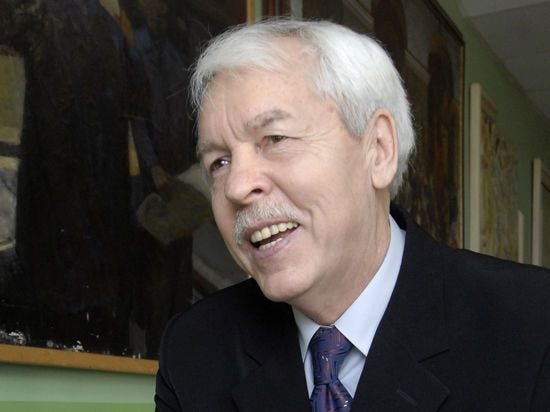
Allow me to indulge in a little detail of the events that led up to the 1994 Crimean uprising, where they would ratify a separate Constitution from Ukraine. It’s important to set the story in context:
According to a now archived timeline on the website for the Office of United Nations High Commissioner for Refugees, which I’ve attempted to edit & put in my own words, we learn the following:
On Jan 20, 1991 A referendum is held in the Crimea with over 80% of the electorate participating. Just over 93% supported the "restoration of the Crimean ASSR as a subject of the USSR and as a party to the Union Treaty."
During Aug of 1991, an attempt at a coup on Russian leader Mikhail Gorbachev fails on the 21st while vacationing in Crimea. On the 24th the Republican Movement of Crimea (later becomes the Republican Party of Crimea) is established by pro-Russian movement leader Yuri Meshkov.
Here we first encounter the illustrious Mr. Meshkov, who would eventually become the most important figure of the Early-mid 90’s Pro-Russian Separatist movement in Crimea. A movement that despite suppression from Kiev, never really died out and would come to fruition 2 decades later.
On Dec 1, 1991 referenda was held for Ukrainian voters to express their will on independence from the USSR, and to elect their 1st president. Independence was passed. But support for Ukrainian independence as expressed by voters in Crimea was the lowest of all of Ukraine at 54% with a low turnout. Support for Russia & the USSR rides high in Crimea. Much of the citizenry are relatives of the Soviet military and the Russian Black Sea Fleet.
This will come to play later on, as a significant outpost of the Russian military remains in Ukraine’s borders even after Ukrainians voted for independence.

On December 25, 1991, the Soviet hammer and sickle flag lowered for the last time over the Kremlin to be replaced by the Russian tricolor. Mikhail Gorbachev resigned his post as president of the USSR, leaving Boris Yeltsin as president of Russia.
On Feb 26, 1992 In an apparent act of defiance the Crimean parliament changes the name of the region from the Crimean ASSR to the Crimean Republic.
May 5-20, 1992 Crimea's parliament declares total independence pending approval by referendum scheduled for August of 1992. On May 13 of 1992 Ukraine declares the independence declaration unconstitutional and orders them to rescind it by May 20th. Recently elected Ukrainian President Leonid Kravchuk was given carte blanche to halt the efforts of the Crimean separatists. On May 20, 1992 the Crimean parliament rescinds its declaration of independence, but only suspends the referendum on independence.
The following day, Russia’s parliament passed a resolution declaring the 1954 transfer of Crimea illegal and called for negotiations on Crimea’s future. By June 1st, Crimea and Ukraine began working on greater autonomy for Crimea as a political entity.
On Jul 9, 1992 The Russian parliament declared Sevastopol a Russian city. Russian President Yeltsin disavows the move.
Beginning in Early-mid Jan 1993, Anti-Ukrainian demonstrations began to fester in the port city of Sevastopol and the Crimean capital city of Simferopol. They demanded the return of Crimea to Russian jurisdiction and early elections. Yuri Meshkov who would eventually become the movement’s most important figure, led demonstrations in Simferopol.
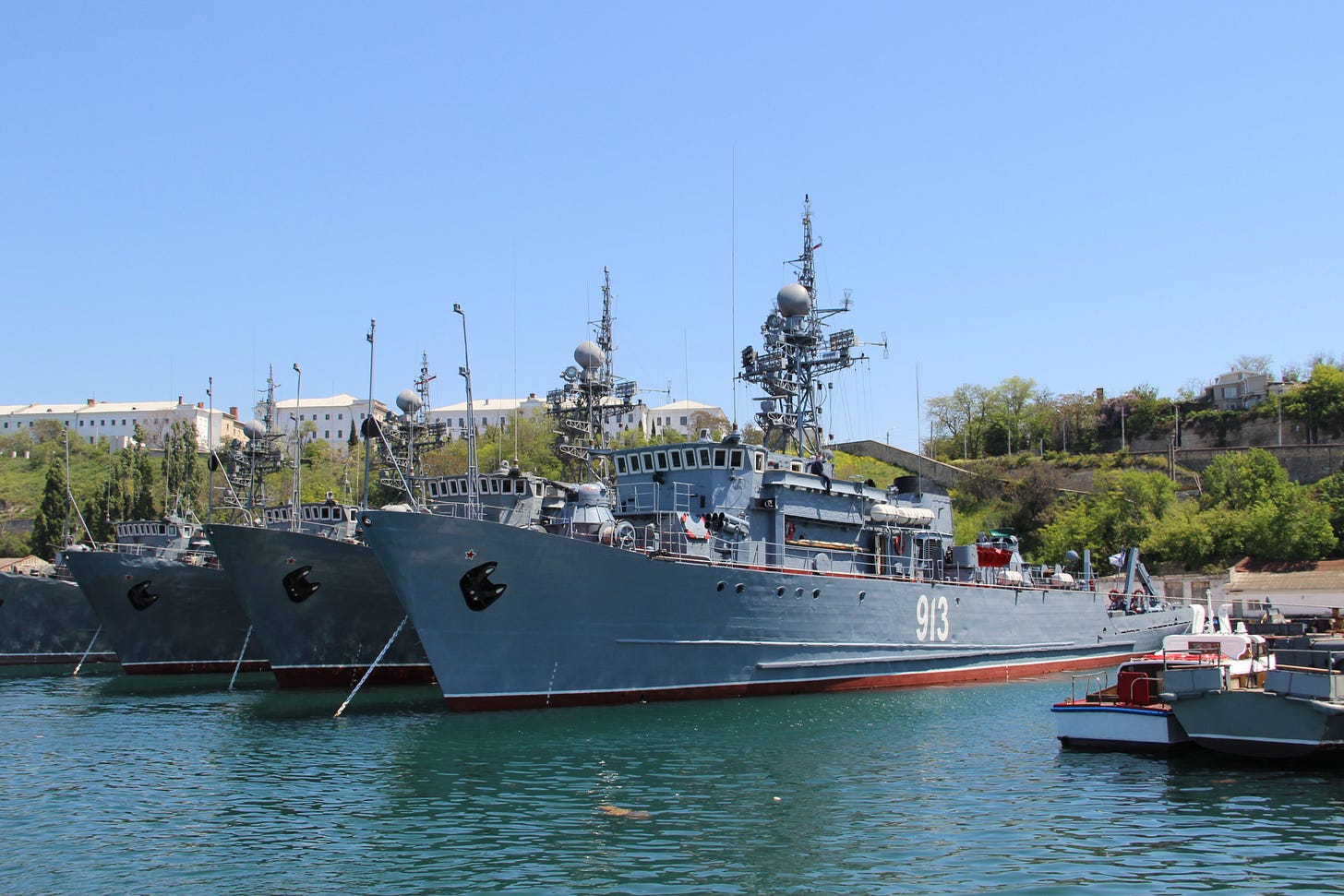
In May of 1993, 115 ships of the Black Sea Fleet raise the Russian flag to protest discrimination. Apparently the Ukrainian sailors were getting paid better than the Russian sailors. This touched off an uprising within the Sevastopol Naval base that had been shared by both the Russia & Ukrainian militaries according to Treaty. Ukraine replied that they would not be paying anyone on any ship flying the Russian flag.
After the collapse of the Soviet Union, Russia and Ukraine faced the contentious problem of how to divide the Black Sea Fleet stationed at Sevastopol. Both Moscow and Kyiv claimed the Soviet-era fleet as their own. Some former Soviet sailors remained loyal to the Kremlin, while others declared their allegiance to newly independent Ukraine. The divided Black Sea Fleet sailors nearly came to blows several times during the 1990s. [Emphasis mine.]
It’s important to note that member soldiers of the Russian Military remained in Crimea even after Ukraine had voted for independence from the USSR.
Ultimately, Russia and Ukraine signed three agreements in 1997 governing the status of the Black Sea Fleet. The fleet was divided between Kyiv and Moscow, with the Kremlin receiving most of the warships. In exchange, Russia paid Ukraine's cash-strapped government $526 million in compensation. Kyiv also agreed to lease Crimean naval facilities to the Russian portion of the fleet for $97 million annually. The leasing agreement was renewed in 2010 and expires in 2042.
Under the agreements, Russia was permitted to station a maximum of 25,000 troops, 132 armored combat vehicles and 24 pieces of artillery at its military facilities in Crimea. [Emphasis mine.]
Not only was Crimea the most Russian-sympathetic of all the Ukrainian oblasts, but their government shared a Naval base with Russia by treaty, which the Russians paid them rent on. And there were laterally tens of thousands of Russian troops stationed at the base in Sevastopol. Or to make it clearer: Russian military forces were already stationed at the Naval Base in Crimea well before Crimea rejoined Russia.
Yuriy Meshkov: The man who would be the only ever “President of Crimea”

Hear a podcast of the gripping story of those heady days of the face-off between Ukraine & Crimea. Yuri Meshkov, whom the Crimeans elected as their President, also shares that he believes he was poisoned by the government at Kiev, during his months-long sheltering in his office in resistance to the Ukrainian forces. Published by the BBC Tues 05/06/2014:
As the BBC reported on 03/23/2014:
Mr Meshkov was the first - and so far only - president of Crimea. He was elected in 1994, by a landslide, on a platform of reuniting the Ukrainian peninsula with Russia.
Like an eager suitor, he hopped on a plane to Moscow… only to find his overtures to Boris Yeltsin rebuffed. The Russian president was far too concerned with building a relationship with the West to stir up the kind of trouble that annexing Crimea would have brought. Times were very different then.
For Mr. Meshkov, Yeltsin's name is mud. He balked at using the Y-word when we spoke, contrasting the late leader's actions - or lack of them - with what he called current President Vladimir Putin's "officer's honour.” [Emphasis Mine]
Yuriy Meshkov was not perfect, and some sources indicate he tried to consolidate power under his control when dealing with opposition to Crimea’s play for independence. But it’s surely noteworthy that whilst many pundits have denied the veracity of Crimea’s 2014 vote to join Russia as at best superfluous, the impulse or desire for reunification with Russia was there all along. And future Russian President Vladimir Putin had only recently resigned from the KGB and begun his political career which would define the rest of his life. IOW, he was not even in power at the time.
But here we have come to verification of Bullet Point #1:
The will of the people of Crimea to join up with Russia since 20 years prior [the early 90’s] has been documented.
Arina Tsukanova, writing in New Cold War on 03/29/2017 summarized the background of Crimea’s eventual rejoining of Russia in this way:
Due to the international media’s continued claims about the “Russian annexation of Crimea”, it’s been difficult for the citizens of the U.S. and Europe to make sense of the details of the peninsula’s recent history. Exactly three years ago, on March 16, 2014, Crimeans were offered a choice: to rejoin Russia or to return to the constitution of 1992 that proclaimed Crimea a legal, democratic, secular state whose relationship with Ukraine was based on bilateral agreements. [Links author’s.]
Arina then Zeroes in on the crux of the problem:
The 1992 constitution was unilaterally abolished by Kiev on March 17, 1995, and here’s what’s surprising: no one at that time in the West demanded that the Ukrainian government stop violating the provisions of international law and the rights of the inhabitants of the Crimean peninsula. [Emphasis mine]
And here, she hits a bullseye right at the heart of the hypocrisy of Ukraine’s supporters:
Then in 1995, special ops forces from the Security Service of Ukraine (SBU) and the Armed Forces of Ukraine (ZSU) landed in Crimea and Sevastopol in order to establish “Ukrainian law and order”, seizing the building housing the Supreme Council of the republic, where the administration of the acting president of Crimea, Yuriy Meshkov, was also headquartered, and demanding that he be turned over. Since Meshkov refused to vacate his office, they tried to poison him. [Emphasis mine.]
The Ukrainian government unilaterally abolished Crimean’s constitution in clear violation of the democratic will of the people. Yuriy Meshkov was the target of a direct assassination attempt by the Ukrainian government in a way that today’s activists championing the freedom of journalists like Julian Assange would’ve had a field day with.
Where were the Activists who now complain about Putin jailing dissenters in Russia, when the Ukrainian government was doing the same damn thing to the Crimeans in 1995?
Calling Rachel Maddow. Are you listening? Don’t bother answering that.
In part II of this blog post, we’ll examine the Crimean situation in historical context, zero in on the 2014 Vote to Re-join Russia, and make note of how the government in Kiev has treated the people of Crimea throughout recent history.





